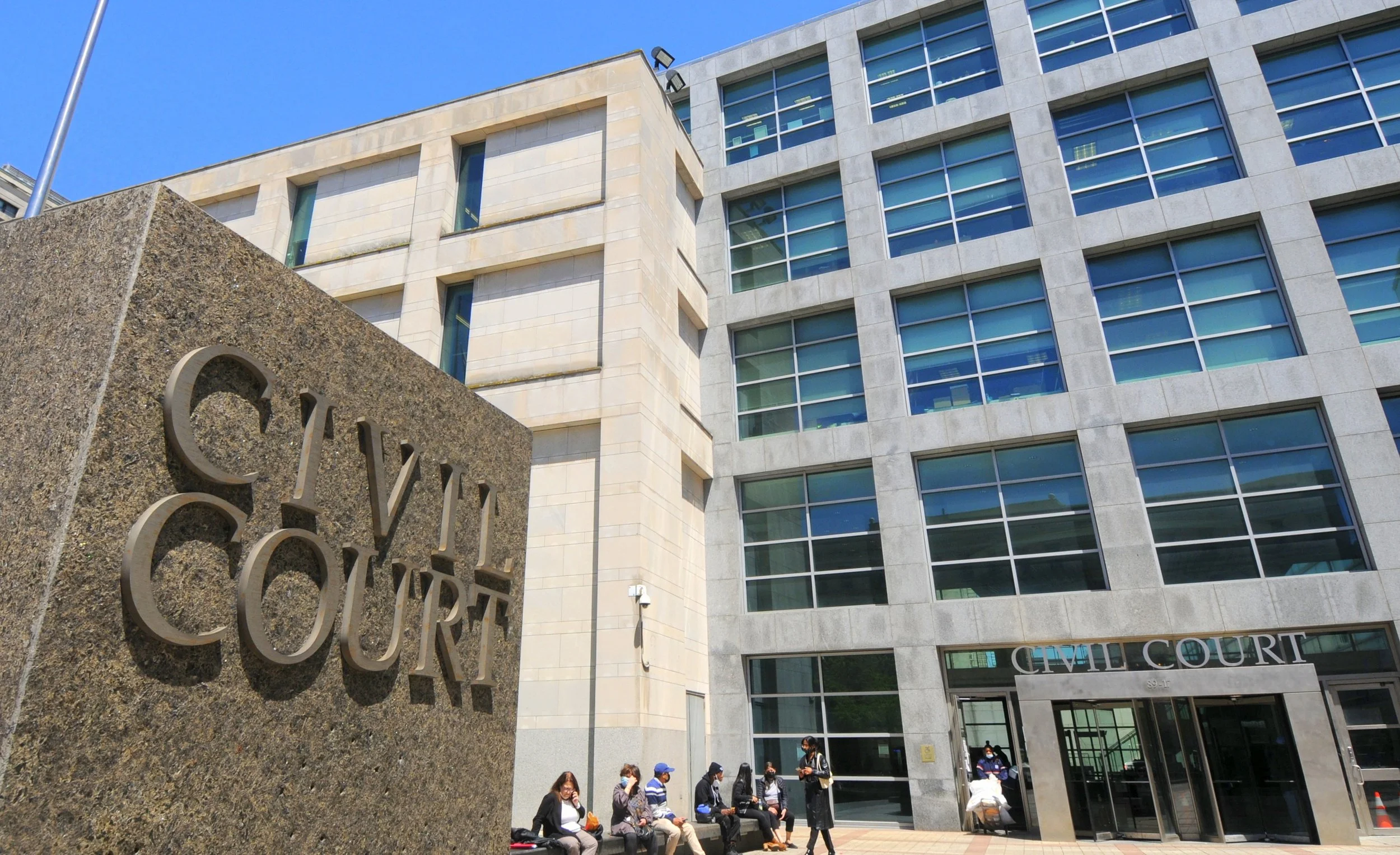Gov signs notary bill into law
/Litigants will no longer be required to get their Civil Court documents notarized – beginning Jan. 1, 2024 – after Governor Kathy Hochul signed a new bill into law this week. Eagle file photo by Walter Karling
By Jacob Kaye
The governor this week signed a widely-supported bill into law eliminating what advocates have said has been a major barrier to accessing justice in the courts of New York State.
Governor Kathy Hochul on Wednesday signed the “Notary bill” into law, an effort to reform the notarization process in civil proceedings in the state.
Those filing documents with Civil Courts in New York will no longer be required to have their submissions notarized, a process advocates say disproportionately affects low-income New Yorkers and those with limited access to transportation.
Under the new law, New Yorkers will only need to swear to a statement under penalty of perjury, without having to notarize the document.
“This law removes barriers to justice for many thousands of New Yorkers involved in civil cases every year,” said Tina Monshipur Foster, the board president of the NY Legal Services Coalition, a major booster of the bill. “Requiring documents in civil proceedings to be notarized creates a barrier that disproportionately impacts low-income and unrepresented individuals, especially in communities of color, with no notable benefit for the justice system.”
New York now becomes one of the over 20 states to have eliminated the notarization requirement, which the federal government has also eliminated.
The bill, which was sponsored by Brad Hoylman-Sigal in the Senate and Charles Lavine in the Assembly, passed without much pushback through both state houses over the summer.
The bill had broad support not only among lawmakers but among public defense firms, criminal justice advocates and the court system itself.
“As we’ve said, this measure promotes uniformity, reduces confusion, and bridges a significant access-to-justice gap for court users,” said Al Baker, the state Office of Court Administration’s communications director, in a statement. “It creates more access by eliminating the unnecessary and burdensome step of notarization for court users and it will eliminate rejection of court filings and other documents solely due to lack of notarization.”
“Additionally, it will help alleviate court traffic related to individuals seeking notarizations from the court clerks’ offices,” Baker added.
Hoylman-Sigal said the bill’s signage brought New York “one step closer to making our court processes less burdensome and more equitable for all.”
“I am proud Governor Hochul signed our bill to eliminate the requirement that court participants must have their documents notarized,” he said. “The outdated provision has long been removed from federal courts — it’s past time New York followed suit.”
Lavine, who chairs the Assembly’s Judiciary Committee, also celebrated the bill becoming law.
“By allowing litigants in civil cases to swear to a statement under penalty of perjury without having to notarize the document, this law removes significant barriers to access to justice especially in housing, civil and family court matters,” the Long Island lawmaker said. “I applaud the Governor for enacting this law and believe it will help New Yorkers by relieving them from an undue financial and cumbersome burden.”
For years, criminal justice advocates said that the notarization requirement posed an undue hurdle low-income New Yorkers had to overcome when dealing with Civil Court proceedings.
The burdens only became more cumbersome during the pandemic, advocates said.
In addition to having to pay a notarization fee, litigants were also required to spend time and money looking for a notary, often having to take time off work and lose out on wages to get their documents notarized.
During the pandemic, the court system began allowing digital notarization in an effort to both slow the spread of the virus but also as a way to increase access to the courts. However, advocates argued that despite the additional ease of notarizing documents online, it still left a number of low-income New Yorkers at a disadvantage.
Those without access to printers, scanners, fax machines or computers often lack the funds to get access to the technology needed to submit a notarized statement online.
With the bill’s passage into law, the New York Legal Services Coalition says clients of theirs, like a woman they’ve identified as Ms. D, will no longer be confronted with the undue barrier.
Ms. D, a 66-year-old woman from Brooklyn, was recently diagnosed with an advanced stage of cancer that spread to her brain, the New York Legal Services Coalition said.
Because of her diagnosis, she was struggling to manage her finances and was issued an eviction notice.
With the new Civil Court case, the New York Legal Services Coalition said she was unable to get documents notarized and the case dealt with.
The Legal Aid Society also celebrated the bill’s passage into law.
“The notarization process has always been incredibly complicated for New Yorkers with limited means, often demanding time-consuming research and travel, digital literacy skills, and fees,” said Judith Goldiner, the attorney-in-charge of the Civil Law Reform Unit at The Legal Aid Society.
“This legislation removes outdated requirements that had long precluded our clients’ access to the court,” Goldiner added. “The Legal Aid Society thanks Governor Hochul and the Legislature, especially bill sponsors Senator Brad Hoylman-Sigal and Assembly Member Charles Lavine, for advancing this needed measure into law.”
The law goes into effect on Jan. 1, 2024.




